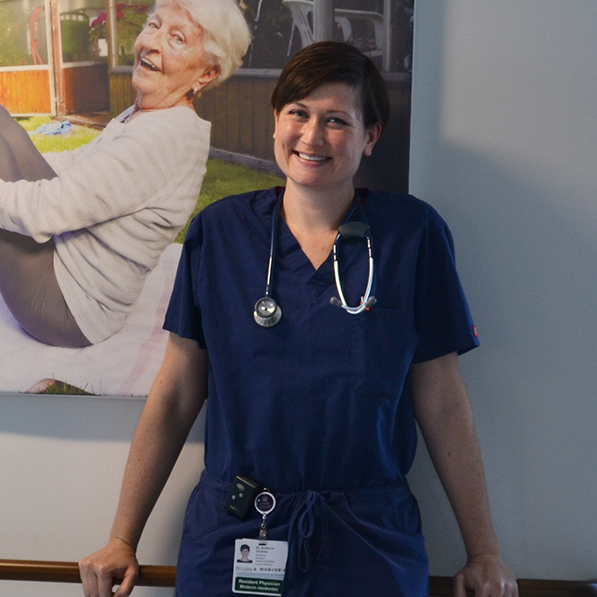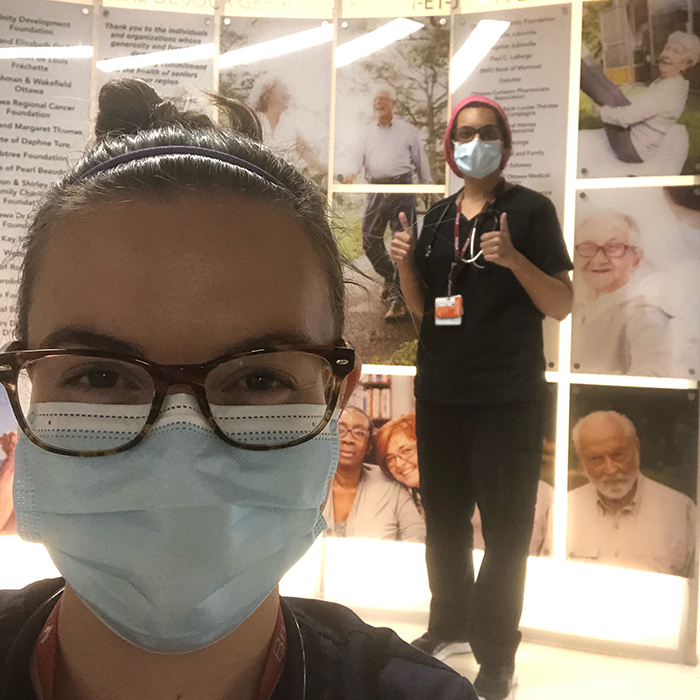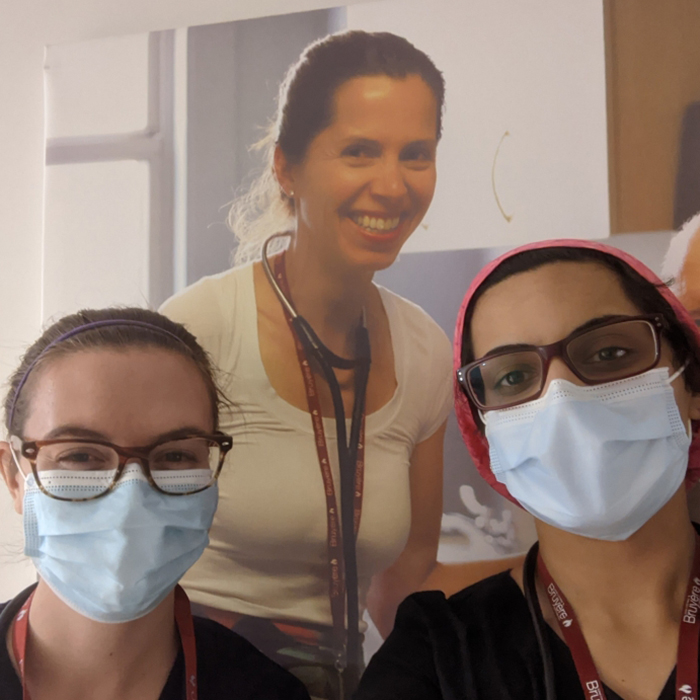The PGY3 resident will be evaluated using standardized forms available through the Department of Family Medicine’s One45 system. E-field notes allow for direct observation evaluations. Residents will also meet with their Program Director at minimum quarterly throughout the residency period.

Care of the Elderly
Care of the Elderly (CoE) Program
Based out of the Department of Care of the Elderly at Bruyère Continuing Care, this dynamic program is led by a large group of family physicians with PGY3 training in CoE. Bruyère is a multi-service continuing care academic health organization that is also home to the Bruyère Research Institute where work is centred to improve the care of the aging population.
We enjoy close ties with our colleagues in geriatric medicine and geriatric psychiatry, as well as with other community-based family physicians with focused practices in care of the elderly. Our program offers rotations in acute care, subacute care and long-term care. There is also potential to have select rotational exposures in French should there be interest. We strive to ensure a wealth of learning opportunities in a wide variety of settings. There is a strong emphasis on collaboration with family physicians to provide comprehensive primary care to seniors in the community.
To be eligible for the CoE program, the candidate must be certified in Family Medicine, in their final year of residency training or already in practice. The candidate should possess an interest in and passion for improving the health and quality of life of elderly patients.
Established in 1997, the program is fully accredited by the College of Family Physicians of Canada (CFPC).

Goals and Objectives
The goals of the CoE training program are to:
-
Prepare trainees to provide care to frail and medically complex elderly patients both in the community and in institutional settings;
-
Provide trainees with the knowledge and skills to take on leadership and administrative roles relating to the care of elderly patients;
-
Prepare trainees to act as a consultant or resource person in a rural or urban setting;
-
Participate in the development of programs aimed at improving the health and quality of life of elderly patients; and,
-
Allow participants to pursue an academic career in family practice health care of the elderly.
The CoE program aims to develop core competencies in assessing and managing elderly patients in a variety of settings. Areas of proficiency include:
-
Dementia;
-
Delirium;
-
Depression and mental health issues;
-
Polypharmacy;
-
Bowel and bladder disorders;
-
Falls and mobility issues;
-
Chronic disease management;
-
Preventive care;
-
Interprofessional collaboration; and,
-
Facilitation/planning of learning activities.
Core competencies as outlined by the College of Family Physicians of Canada’s Priority Topics for Care of the Elderly (Priority Topics and Key Features for the Assessment of Competence in Care of the Elderly) will be achieved through the program. There are CANMEDS-FM rotation-specific objectives for all core rotations. You will be asked to develop specific objectives for your elective rotations, and to review these with the Program Director and the supervising physician.

Program Structure
The program has core rotations in:
-
Geriatric rehabilitation;
-
In-patient geriatric medicine;
-
Geriatric psychiatry; and,
-
Outpatient work in the geriatric day hospital setting.
Two self designed elective rotations will allow the trainee to tailor their PGY3 year to specific career goals. Furthermore, the trainee will be connected longitudinally to a primary care practice to maintain core family medicine skills.
Rotations sites may include Bruyere Hospital, The Ottawa Hospital, the Royal Ottawa Mental Health Centre, Hôpital Montfort, the Queensway Carleton Hospital and local long-term care facilities.
The trainee will be exposed to medical administration and leadership opportunities, including teaching junior learners both in clinical and non clinical settings. Further academics include participation and attendance to geriatric academic rounds as well as completion of a scholarly project.

Evaluation
How to Apply
Residents currently enrolled in a Family Medicine training program, please consult the CaRMs website for details. Interested re-entry candidates please contact interim program director Dr. A. Wilson at [email protected] for further information.